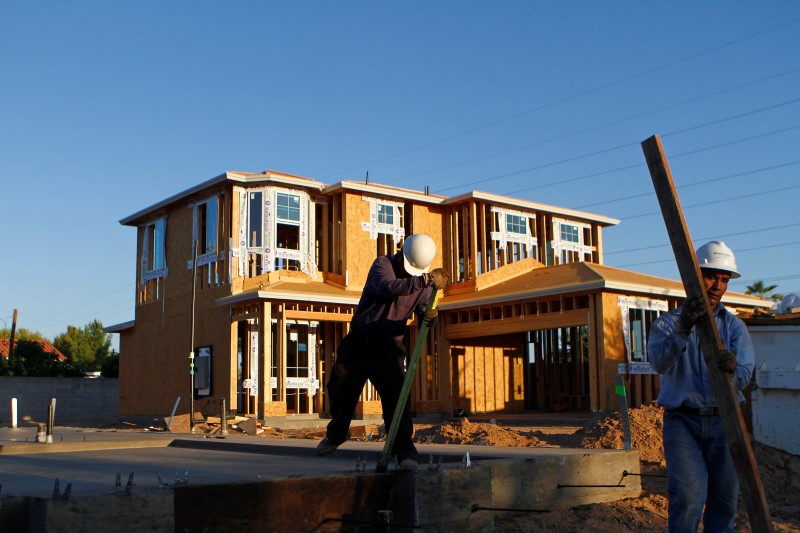(Bloomberg) -- U.S. new-home construction unexpectedly fell in July for a third month on another drop in starts of apartment buildings that masked a gain in single-family units.
Residential starts dropped 4% to a 1.19 million annualized rate after a downwardly revised 1.24 million pace in the prior month, according to government figures released Friday. The median forecast in a Bloomberg survey of economists called for a 1.26 million pace.
Multifamily home construction slumped for a second month, while starts of single-family housing increased to the highest level since January.
Key Insights
- The data on single-family homebuilding, bolstered by the highest level of permits in that category since November, suggest homebuilding remains stable in the face of lot and labor shortages. Some builders are trying to alleviate a nationwide deficit of affordable housing as solid wages and low mortgage rates support demand.
- Total building permits, a proxy for future construction, rose 8.4% to a 1.34 million rate, exceeding estimates. The monthly increase was the largest in more than two years.
- Data out Thursday showed sentiment among U.S. homebuilders rose in August to match this year’s high, but a weaker outlook suggests upward momentum in the months ahead may prove fleeting.
- Single-family starts climbed 1.3% to 876,000 annualized rate, and permits rose for a third month.
- Data out next week are forecast to show existing-home sales, which make up the majority of the U.S. housing market, increased in July while the pace of new home sales eased.
Get More
- Starts for multifamily homes, a category that tends to be volatile and includes apartment buildings and condominiums, decreased 16.2% after a 16.4% decline in June, while permits increased 21.8% last month.
- Three of four regions posted a decline in starts.
- The report, produced jointly by the U.S. Census Bureau and the Department of Housing and Urban Development, has a wide margin of error, with a 90% chance that the headline figure was between a 12% decline and 4% increase.
©2019 Bloomberg L.P.
